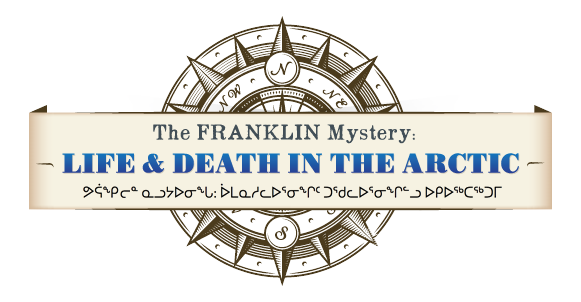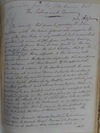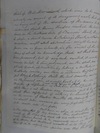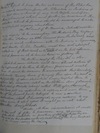Sir John Barrow [Regarding the Relief of the Franklin Expedition] (1847 July)
The Erebus and Terror
July 1847
The anxiety that prevails, regarding Sir John Franklin and the brave fellows who compose the crews of the two ships, is very natural, but somewhat premature; it arises chiefly from nothing having been received from them, since fixed in the ice of Baffin's Bay, where the last whaling ship of the season of 1845 left them, opposite to the opening into Lancaster Sound. Hitherto no difficulty has been found to the entrance into that Sound. If disappointed, rather than to return to the Southward, with the view of wintering at or about Disco, I should be inclined to think that they would endeavour to enter Smith's Sound, so highly spoken of by Baffin, and which, just now, that gallant and adventurous Russian Admiral Ferd. Wrangel, has pointed out, in a paper addressed to the Geographical Society, as the starting place for an attempt to reach the North Pole; it would appear to be an inlet that runs up high to the Northward, as an Officer in one of Parry's Ships, states that he saw, in the line of directions along that inlet, the sun at midnight skimming the horizon.
From Lancaster Sound, Franklin's Instructions directed him to proceed through Barrow's Strait as far as the island on its Southern Side, extended, which is short of Melville Island, which was to be avoided not only on account of its dangerous coast, but also as being out of the direction of the course to the intended object. Having therefore reached the last island on the southern side of Barrow's Strait, they were to shape a direct course to Behring's Strait, without any deviation, except what obstruction might be met with from ice or from islands, in the midst of the Polar Sea; of which no knowledge had at that time been procured; but if any such existed, it would of course be left to their judgement, on the spot, how to get rid of such obstruction, by taking a northerly or a southerly course; one thing is certain - they did not get through Behring's Strait the last season; and if in the present one, it would probably be in the months of September or October, and about February or March before we could hear of it. There is not therefore any occasion yet to be anxious about their safety; but if nothing be heard of them in the course of these two months, the Admiralty will no doubt take measures for every possible enquiry to be made into their fate.
But how or where to direct this enquiry is the difficulty: If they pursued their instructions, the coast of the Polar Sea, and its two entrances, are the most obvious points to be examined; and in the course of the Spring, Lord Auckland consulted Sir Ed. Parry and myself on the subject, our opinion was that the first step was that of a vessel to pass the two entrances of the Polar Sea; in order to ascertain from the Eskimaux or Indians if they had seen or heard of any such vessels, and if so, how, when, and where; and further, we recommend the whalers about to proceed should be encouraged to make every possible inquiry about them.
On the Coast of N. America, I should consider any inquiry to be unnecessary. The Hudson's Bay Company have their stations so little removed from the Sea Coast, and have so much intercourse with the Indians or Esquimaux, and besides Sir John Franklin must have such a painful recollection of that Coast, as to avoid it in the first instance, and if forced on it, to lose no time in quitting it.
The Northern coast of the Polar Sea is also inhabited, even Siberia, and I am almost certain if they happened to be there, the Russian Government would know it, and be anxious to communicate that knowledge to England. The only chance of bringing them upon this coast is, the possibility of some obstruction having tempted them to explore an immense inlet on the Northern Shore of Barrow's Strait (short of Melville Island) called Wellington Channel, which Parry felt an inclination to explore; and more than one of the present party betrayed to me a similar inclination, which I discouraged, no-one venturing to conjecture even to what extent it might go, or into what difficulties it might bode.
Under all these circumstances it would be an act of folly to pronounce any opinion of the state, condition or position of those two ships; they are well equipped for their purpose, and the only doubt I have is that of their being hampered by the screws, among the ice.





